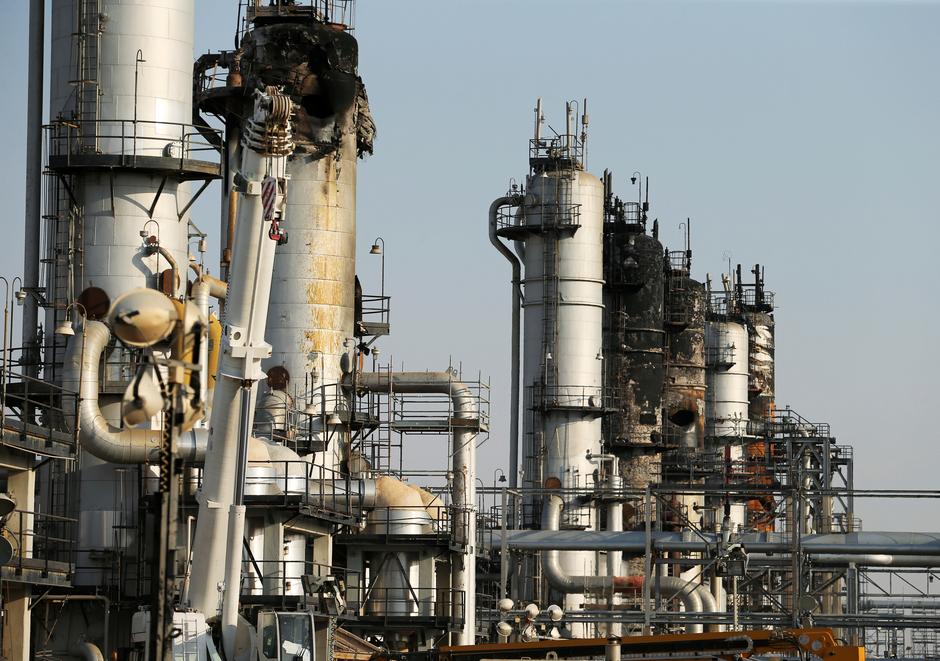Iran’s support for terrorism has surged in 2019

The US State Department last week released its annual Country Reports on Terrorism document. The report describes the Islamic Republic as the “world’s worst state sponsor of terrorism” in 2018. It also lists Iran’s staunch ally, the Syrian government, as a state sponsor of terrorism.
While the report looks at Iran’s activities in 2018, it is important to examine how its behavior has changed this year, as there has been a significant surge in Iran’s support for terrorist activities.
The Iranian regime has been involvedin and subsequently sanctioned for numerous terrorist and destabilizing activities in the Middle East in 2019. This has included the harassmentof ships in the Strait of Hormuz, such as the seizing of the UK-flagged Stena Impero by the Islamic Revolutionary Guard Corps, and attacks against four ships: Two Saudi oil tankers, a Norwegian-flagged vessel and one flagged in Sharjah, which were anchored off the coast of the UAE.
The Iranian regime has also continued to smuggleweapons and provide military, financial, intelligence and advisory assistance to proxies such as the Houthis in Yemen, Hezbollah, and Iraqi Shiite militias including Kata’ib Hezbollah. This has contributed to a greater propensity for Houthi rocket launches aimed at civilian targets in Saudi Arabia, the deployment of thousands of Hezbollah foot soldiers in Syria, and the regular bombardment of southern Israel by Iranian-funded Hamas rockets.
For example, on April 2, April 8, May 20, June 20 and June 30, Saudi Arabia intercepteddrone and missile attacks launched by the Iran-backed Houthis toward civilian targets. On May 14, a Houthi drone attack damagedtwo oil pumping stations near Riyadh. On June 12 and June 23, Abha International Airport was targeted, with one civilian killed and more than 40 injured. On Aug. 25, the Houthis fired10 ballistic missiles at Jizan airport, causing dozens to be killed or injured.
Finally, although the Houthis also claimed responsibility for a major drone and missile attackon the oil processing facilities at Abqaiq and Khurais on Sept. 14, it is believed the Iranian regime was actually responsible. US Secretary of State Mike Pompeo said: “Tehran is behind nearly 100 attacks on Saudi Arabia while (President Hassan) Rouhani and (Foreign Minister Mohammed Javad) Zarif pretend to engage in diplomacy. Amid all the calls for de-escalation, Iran has now launched an unprecedented attack on the world’s energy supply. There is no evidence the attacks came from Yemen.”
As a result of Iran’s destabilizing behavior, six Gulf nations recently joined the US in imposingsanctions on several Iranian entities.
Meanwhile, Tehran reportedly still sheltersmembers of the terrorist group Al-Qaeda and continues to facilitate the group’s operation in the region.
But Iran’s terrorist, illicit and belligerent activities have not been limited to the Middle East. Its terrorism in Europe has continued and ultimately pushed the EU to level sanctions against Iranian entities and hold Tehran accountable for its actions. The Council of the European Union made an unprecedented decision in January, declaringthat it had “decided, with the unanimous agreement of all member states, to include on the European list of individuals, groups and entities involved in acts of terrorism, one entity and two individuals responsible for plotting to attack a meeting of the Mujahedeen-e-Khalq, a group that advocates the overthrow of the Iranian leadership.”
The EU had resisted imposing sanctions on Iran due to the nuclear deal that was reached in 2015. However, Tehran’s destructive behavior on European soil ultimately forced the bloc to put pressure on the theocratic establishment. If Tehran does not address its terrorist and destructive activities in Europe, the Dutch Foreign Minister Stef Blok also warned that “further sanctions cannot be ruled out.”
As a result of Iran’s destabilizing behavior, six Gulf nations recently joined the US in imposingsanctions on several Iranian entities.
Dr. Majid Rafizadeh
In addition, due to reports of Iran transporting military equipment and personnel to Middle East war zones via commercial flights, Italy stated last week that it will ban the Iranian company Mahan Air from operating in the country from mid-December. Germany and France also banned flights by Mahan Air this year.
In Albania, the General Police Director Ardi Veliu revealedlast month that an active terror cell linked to the Iranian Quds Force had been detected by the country’s security institutions. Veliu said a planned attack in Albania by Iranian government agents was foiled in March.
Finally, Iran has also been behind major cyberattacksagainst foreign governments and private companies in 2019.
There has been a significant surge in terror activities committed by Iran and the terror groups it supports this year. This should be a warning to the international community and it is incumbent on world leaders to hold the Iranian regime accountable.
- Dr. Majid Rafizadeh is a Harvard-educated Iranian-American political scientist. He is a leading expert on Iran and US foreign policy, a businessman and president of the International American Council. Twitter: @Dr_Rafizadeh









































